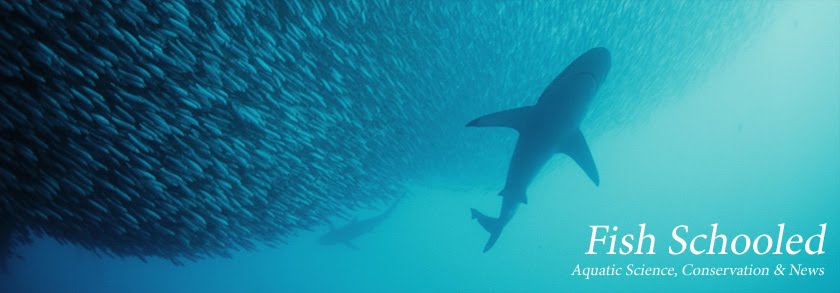
The ability to find food is one of the most important behaviours an animal can undertake, and one of the best advantages an animal can have is to remember where food can commonly be found. Laboratory studies have shown that fish are able to use learning-based strategies to locate food with most studies focusing on the aquatic equivalent of the lab rat - the goldfish. This fish has been shown to typically use visual landmarks to remember a food source within laboratory arenas. In this study the authors used radio tagged common carp to investigate the ability of free ranging fish to undertake similar behaviours. Carp are very closely related to goldfish and share similar feeding habits and sensory cues while feeding. This was undertaken in a highly turbid lake with a water clarity of <>
This study showed that carp could quickly learn and find the location of a food reward in the natural environment. It typically took the carp six days to learn and remember where the food reward was. This matches that found in laboratory trials. Carp were highly nocturnal in their feeding habits and would leave their home range during the night consistently visiting the food reward once the location was known.
 What impresses me the most is that they did this at night, in highly turbid conditions, and in a featureless environment. This precludes the use of visual landmarks which is what is typically used by fish in laboratory arenas. It is likely that carp were using olfactory cues to locate the food source rather than vision since carp are known to have an extremely well developed sense of smell. The authors also suggest that the speed with which carp learned to find the food may have been facilitated by social learning as carp and goldfish both learn from shoaling conspecifics in laboratory trials.
What impresses me the most is that they did this at night, in highly turbid conditions, and in a featureless environment. This precludes the use of visual landmarks which is what is typically used by fish in laboratory arenas. It is likely that carp were using olfactory cues to locate the food source rather than vision since carp are known to have an extremely well developed sense of smell. The authors also suggest that the speed with which carp learned to find the food may have been facilitated by social learning as carp and goldfish both learn from shoaling conspecifics in laboratory trials.This study has some big implications. Firstly, carp are known to undergo extensive movements of 100 km or more. They will often enter areas to spawn that are unstable but predator free, and the ability to remember such locations would significantly improve the survival of their offspring. The ability to remember important sites would therefore be highly adaptive. Another implication is to use this knowledge to reduce the numbers of this fish, which is one of the most invasive species worldwide. By setting up feeding stations you may be able to attract many carp to a specific location within a short time frame and then undertake selective removal.

Amazing! Did you know fish also have personalities. Here is a video that presents the study of Stickleback personalities. Will definitely be of interest. http://cbt20.wordpress.com/2010/04/12/biotechnology-and-fishy-
ReplyDeletehttp://cbt20.wordpress.com/2010/04/12/biotechnology-and-fishy-personalities/
ReplyDeleteYes I do a lot of behavioural work with fish and they are always different depending on the individual.
ReplyDelete